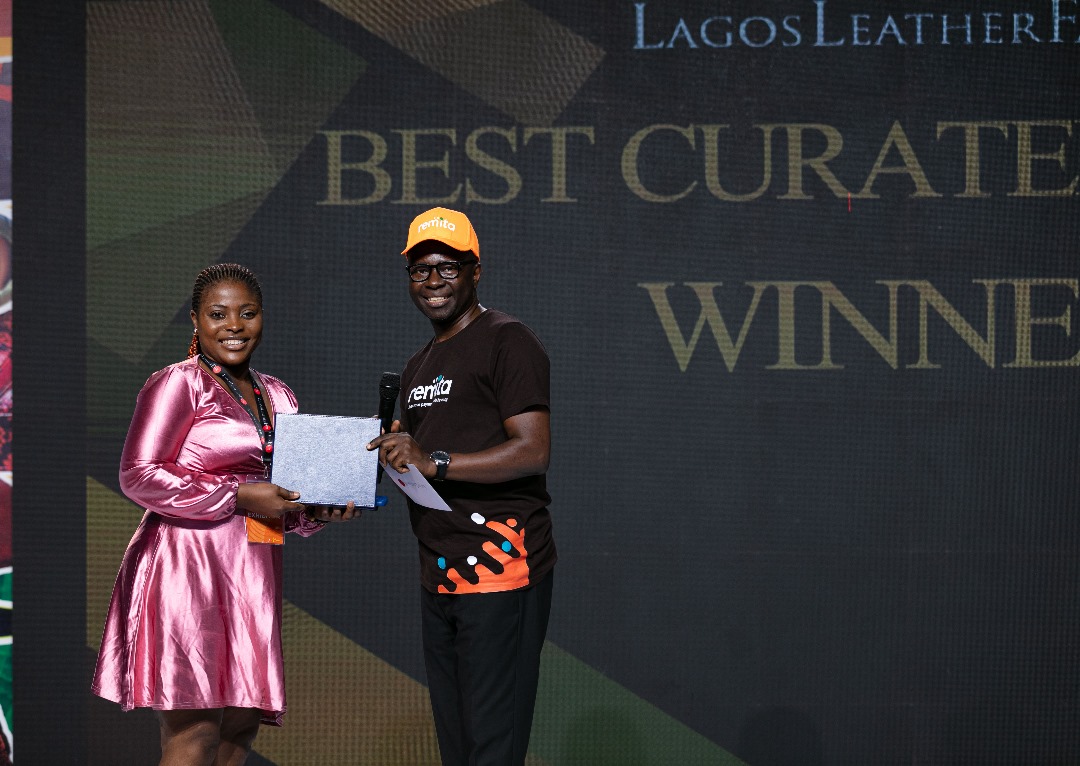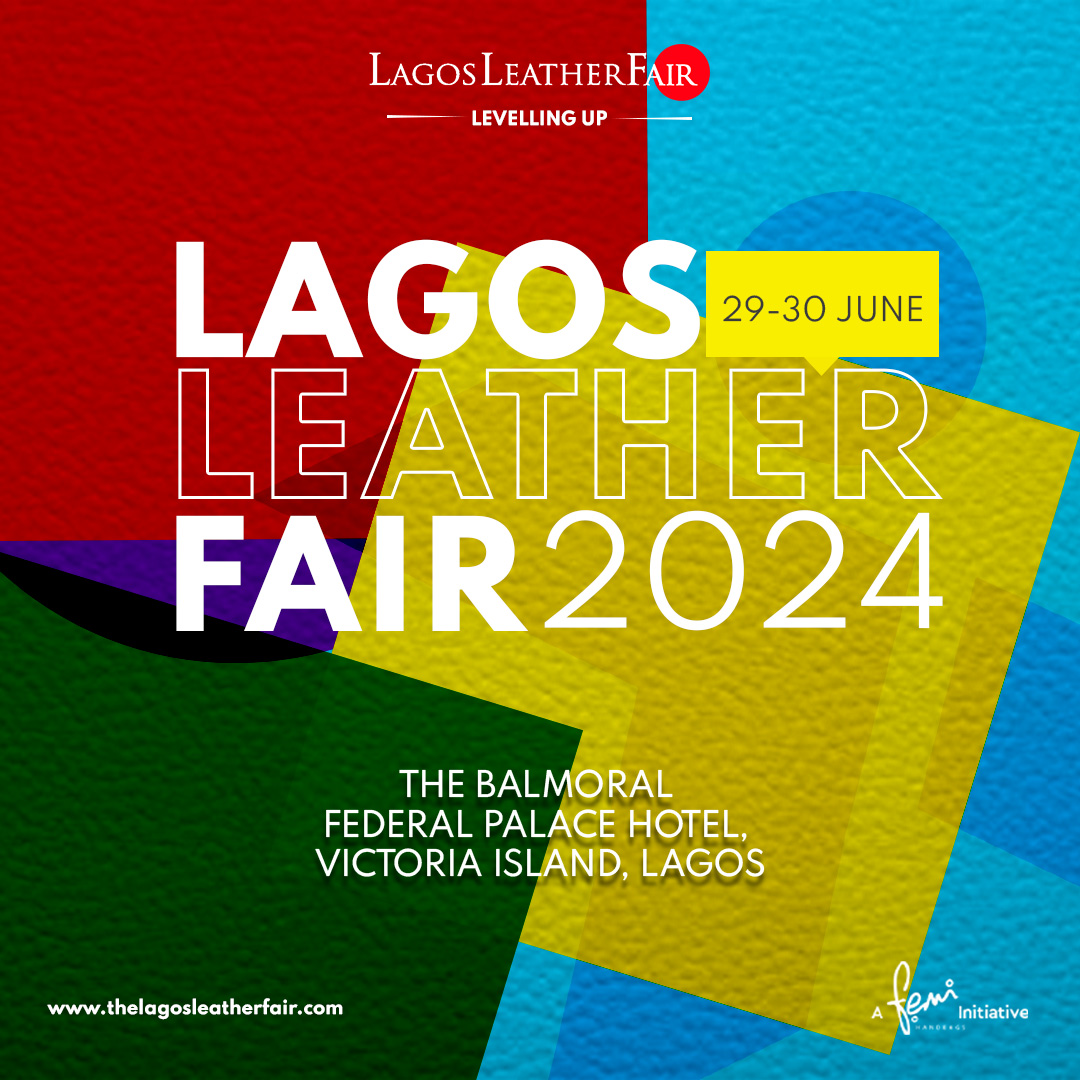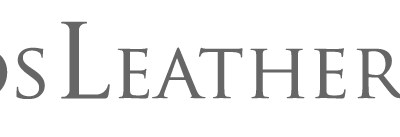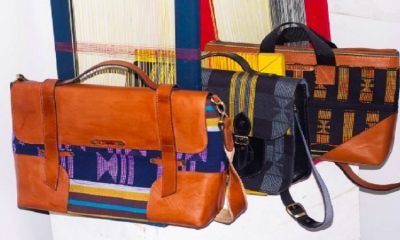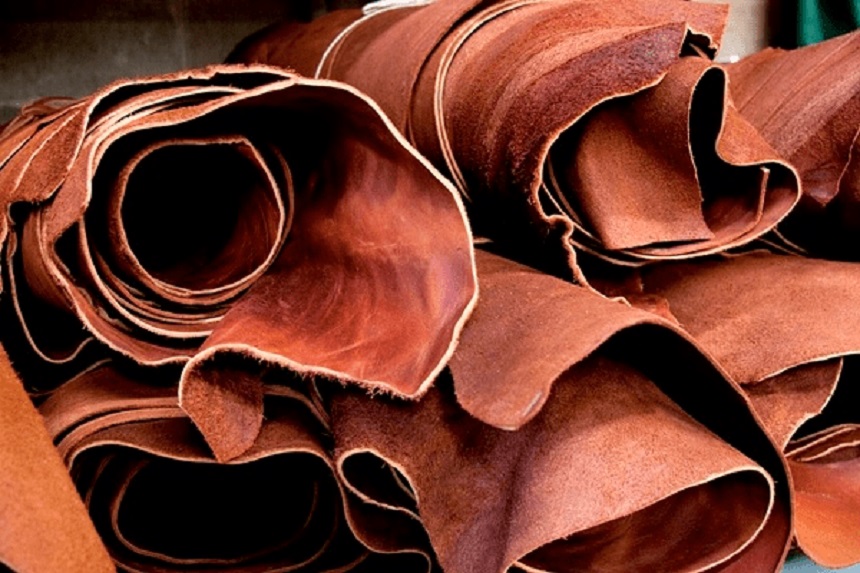Economy
LLF @5: Creating Opportunities for Leather Industry Players Across Sub-Saharan Africa
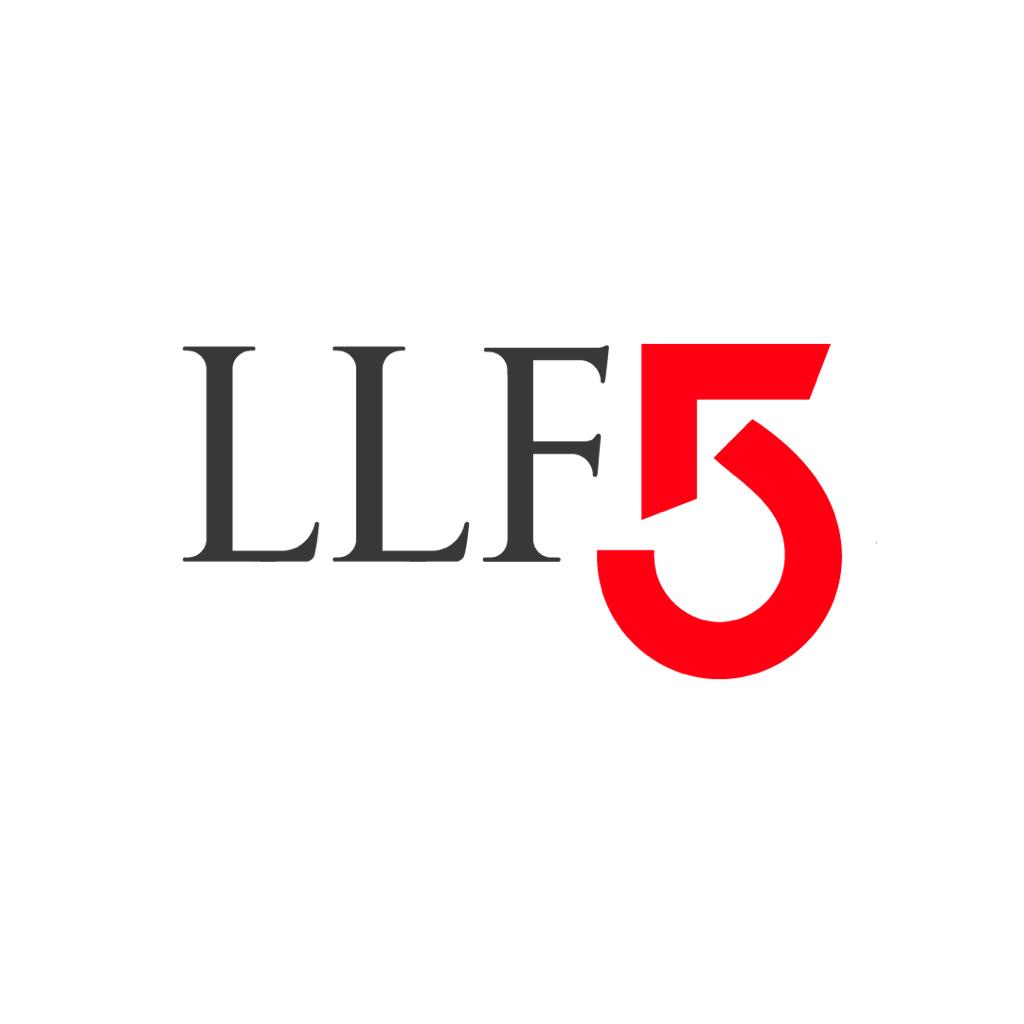
“The fast-evolving nature of the leather industry in Nigeria is quickly positioning the industry to become the next gold mine for our dear nation — that is, if it is properly explored and harnessed by both industry players and governmental bodies,” Femi Olayebi, CEO FemiHandbags, and Founder, Lagos Leather Fair opined at a leather industry stakeholder event.
Over the years, the Nigerian leather industry has continued to evolve and positively contribute to Africa’s economy both in revenue and in employment opportunities. According to the Nigerian Economic Summit Group (NESG), research shows that the industry contributes about 24% of the agricultural sector’s contribution to the GDP in Nigeria.
It is also one of the more significant employers of labour, with over 750,000 workers in the leather processing sector and about 500,000 in the finished leather goods sector. The Nigerian Economic Summit Group (NESG) has also projected that the industry could bring in earnings of about US$1 billion by 2025. Undoubtedly, the sector has the potential to metamorphose into the next big deal for Africa’s economy.
In order to make this prediction a reality, whilst simultaneously tapping into the enormous potential of the industry, select leading brands and industry thought leaders are taking up the responsibility — by forging alliances, and launching forward-thinking projects. One such project is the Lagos Leather Fair.
Creating opportunities for African Leather Industry Players
The Lagos Leather Fair (LLF) was created in 2017 by Mrs Femi Olayebi, the Creative Director of FemiHandbags — one of the continent’s leading leather brands. Having experienced, first-hand, the challenges that plague the sector, she was determined to provide a much-needed platform for leather designers to showcase their products, partner with stakeholders to grow the finished leather goods sector and change the narrative within an industry that holds an amazing potential to succeed as major foreign exchange earner.
Driven by these goals, the platform opened its doors to more than 6,900 individuals, businesses, partners, and other stakeholders from all across sub-Saharan Africa between 2017 and 2021. Each edition has created visibility for African leather-focused businesses and has featured revered thought leaders who equip industry players with the requisite knowledge necessary to navigate and grow within the industry.
Over the years, there has been steady growth within the leather industry. Nonetheless, there are prevailing challenges facing the industry.
Many local shoemakers, for instance, do not have access to the advanced technology needed to design high-quality wear for their teeming customers. This is a potential setback, especially when compared with their international counterparts. A large portion of the more established and advanced shoemakers in Lagos are those who design their shoes abroad and then import these shoes to the country for finishing.
Lagos Leather Fair has sought to tackle this challenge by investing in capacity building opportunities, through a series of training partnerships: seeking to bridge the skills gap in the leather and non-leather manufacturing industries; raise the standards; and equip young industry players with the requisite hard and soft skills to navigate the industry. LLF recently partnered with a training program called Kafawa.
The program was designed by My World of Bags in partnership with Mastercard Foundation, and it presents a holistic training experience from basic machine skills to specialised leather-crafting, to soft skills and entrepreneurship classes; since its launch in 2021, the program has directly impacted over 250 micro and small leather business owners across Nigeria. The 2022 edition of LLF will feature these recent graduate trainees within its Emerging Designers segment at the fair.
Made in Nigeria for Nigerians
Several reports have confirmed that many Nigerians have a preference for international brands because of their perceived higher quality than local brand output. A Stears business report revealed that if you ask 100 Nigerians to choose between local or international brands, 92 will choose the international brand, while 8 would be undecided.
In another blind brand experiment conducted amongst Nigerians, 98% claimed that they could differentiate between internationally-made and locally-made shoes. When the shoes were provided to them, however, only 32% could make a distinction. As a result, many companies across diverse industries have launched several consumer-focused campaigns to encourage local shopping, and the leather sector is no different.
Since its inception, the Lagos Leather Fair has curated over 30 masterclasses that have held conversations to change the narrative around made-in-Nigeria, for the leather industry and beyond. A call for Nigerians to shop local will not only develop the leather industry but will have a significant impact on the Nigerian economy at large. Lending their voices to the cause, respected thought leaders Alheri Egor-Egbe from Google, Giovanni Romano from Ithaki Paris, Laduma Ngxokolo from Maxhosa Africa in South Africa, Prof. Yvonne Watson of the Parsons School of Design, New York and a 3-D design expert Baboa Tachie-Mensa from Ghana, and dozens of others have joined in to drive this conversation with LLF over the years. These conversations are well paired with the fair’s spotlight on strong industry brands with premium quality products that have begun indeed to change the narrative.
2022 Outlook
“For us at LLF, the goal is to continue to drive value and draw attention to the leather industry. We believe that we have discovered a gold mine that will not only make our businesses successful but will increase the prosperity of our nation. We will not stop doing the good work until the industry is developed,” said Femi Olayebi, CEO FemiHandbags, and Founder of Lagos Leather Fair.
In 2022, LLF is set to host several initiatives in line with its overarching goals. In commemoration of its 5th anniversary, the platform is set to host another physical fair in Lagos, Nigeria — it will open its doors to leather enthusiasts, producers, manufacturers, lifestyle lovers, fashion experts, and the wider public to showcase leather products and services and keep the spotlight on the vast possibilities within the industry.
This year’s fair will take place at the Balmoral Convention Center at Federal Palace Hotel, Victoria Island, Lagos on June 11t and 12. This year, LLF will feature dozens of leather exhibitors, and create opportunities for brands to connect with prospective customers, their peers and other stakeholders; masterclasses to drive conversation; atelier sessions to expose the hidden tricks of leather crafting, and fashion runway showcase to further showcase brands.
LLF has also hinted at the launch of two initiatives that will further drive the industry forward: one is The Leather Portal — a platform that will serve as an e-directory connecting leather designer, brands, tanneries, and hardware suppliers across Nigeria and Africa; another is the Guild of Leather Designers (GOLD), a not-for-profit advisory body that will support the professional development of leather designers, promote best practices, facilitate access to business development tools and serve as a bridge between leather designers and various stakeholders to create an effective and sustainable ecosystem.
There is no better time than now for the government to begin to take a closer look at the leather sector. In 2021, the National Leather and Leather Products Policy Implementation Plan was launched to address specific challenges and shortcomings of the leather sector, with pragmatic strategies to permanently resolve these issues for optimal productivity. Whilst this is a commendable development, there is an urgent need to begin to put that plan to action, and a great first step would be to get a closer glimpse into the happenings in the industry by starting at this year’s Lagos Leather Fair.
Economy
Champion Breweries Concludes Bullet Brand Portfolio Acquisition

By Aduragbemi Omiyale
The acquisition of the Bullet brand portfolio from Sun Mark has been completed by Champion Breweries Plc, a statement from the company confirms.
This marks a transformative milestone in the organisation’s strategic expansion into a diversified, pan-African beverage platform.
With this development, Champion Breweries now owns the Bullet brand assets, trademarks, formulations, and commercial rights globally through an asset carve-out structure.
The assets are held in a newly incorporated entity in the Netherlands, in which Champion Breweries holds a majority interest, while Vinar N.V., the majority shareholder of Sun Mark, retains a minority stake.
Bullet products are currently distributed in 14 African markets, positioning Champion Breweries to scale beyond Nigeria in the high-growth ready-to-drink (RTD) alcoholic and energy drink segments.
This expansion significantly broadens the brewer’s addressable market and strengthens its revenue base with an established, profitable portfolio that already enjoys strong brand recognition and consumer loyalty across multiple markets.
“The successful completion of our public equity raises, together with the formal close of the Bullet acquisition, marks a defining moment for Champion Breweries.
“The support we received from both existing shareholders and new investors reflects strong confidence in our long-term strategy to build a diversified, high-growth beverage platform with pan-African scale.
“Our focus now is on disciplined execution, integration, and delivering sustained value across markets,” the chairman of Champion Breweries, Mr Imo-Abasi Jacob, stated.
Through this transaction, Champion Breweries is expected to achieve enhanced foreign exchange earnings, expanded distribution leverage across African markets, integrated supply chain efficiencies, portfolio diversification into high‑growth consumer beverage categories, and strengthened presence in the RTD and energy drink segments.
The acquisition accelerates Champion Breweries’ transition from a regional brewing business to a multi-category consumer platform with continental reach.
Bullet Black is Nigeria’s leading ready-to-drink alcoholic beverage, while Bullet Blue has built a strong presence in the energy drink category across several African markets.
Economy
M-KOPA Nigeria Plans Expansion to Edo, Others After N231bn Credit Milestone

By Adedapo Adesanya
Emerging market fintech firm, M-KOPA, has announced plans to deepen its reach in Nigeria to the South South and South East regions, starting with Edo this year, after providing N231 billion in credit to over 1 million customers in the country.
The firm released its first Nigeria-focused Impact Report, which showed that Nigeria is M-KOPA’s fastest-growing market and fastest to reach the milestone.
Since its foray into the Nigerian market in 2019, M-KOPA has been working to dismantle barriers to financial inclusion by providing flexible smartphone financing and digital financial tools that align with how people in the informal economy earn and manage their money.
It operates in six states in the country, including Lagos, Ogun, and Oyo, among others.
The report highlights the company’s contribution to income generation, digital inclusion and economic opportunity for Every Day Earners across the country.
The report showed that M-KOPA has enabled 290,000 first-time smartphone users, while 56 per cent of agents accessed their first income opportunity through the platform.
It showed high income and livelihood gains among its users, with about 77 per cent of customers leveraging smartphones or digital loans obtained through the platform to generate income, indicating that access to financed devices is directly supporting micro-entrepreneurial activity and informal sector productivity.
Furthermore, 75 per cent of users report higher earnings since gaining access to M-KOPA’s services, suggesting measurable improvements in personal revenue streams. On the distribution side, 99 per cent of agents disclose increased earnings, reflecting positive spillover effects across the company’s value chain.
In addition, 81 per cent of long-term customers state that their household expenses have improved, pointing to enhanced financial stability and better consumption smoothing over time.
Speaking on the report, Mr Babajide Duroshola, General Manager, M-KOPA Nigeria, said, “Nigeria represents extraordinary potential, and we’re proud that it has become M-KOPA’s fastest-growing market. Our Impact Report shows that when Every Day Earners gain access to the right digital and financial tools, they use them to create stability and long-term progress for their families. This is about access that unlocks opportunity and sustained prosperity.”
On its expansion plans Nigeria-wide, the M-KOPA helmsman said, “Many of the states we are considering are already similar to the ones we are currently in proximity… So, there is proximity and similarity between these states, and that’s what we are going to do, starting with Edo.”
He noted that as M-KOPA Nigeria continues to expand, the focus remains on ensuring more everyday earners gain access to the digital and financial tools they need to build resilient, prosperous futures in Nigeria’s rapidly digitising economy.
Economy
Tinubu Okays Extension of Ban on Raw Shea Nut Export by One Year

By Aduragbemi Omiyale
The ban on the export of raw shea nuts from Nigeria has been extended by one year by President Bola Tinubu.
A statement from the Special Adviser to the President on Information and Strategy, Mr Bayo Onanuga, on Wednesday disclosed that the ban is now till February 25, 2027.
It was emphasised that this decision underscores the administration’s commitment to advancing industrial development, strengthening domestic value addition, and supporting the objectives of the Renewed Hope Agenda.
The ban aims to deepen processing capacity within Nigeria, enhance livelihoods in shea-producing communities, and promote the growth of Nigerian exports anchored on value-added products, the statement noted.
To further these objectives, President Tinubu has authorised the two Ministers of the Federal Ministry of Industry, Trade and Investment, and the Presidential Food Security Coordination Unit (PFSCU), to coordinate the implementation of a unified, evidence-based national framework that aligns industrialisation, trade, and investment priorities across the shea nut value chain.
He also approved the adoption of an export framework established by the Nigerian Commodity Exchange (NCX) and the withdrawal of all waivers allowing the direct export of raw shea nuts.
The President directed that any excess supply of raw shea nuts should be exported exclusively through the NCX framework, in accordance with the approved guidelines.
Additionally, he directed the Federal Ministry of Finance to provide access to a dedicated NESS Support Window to enable the Federal Ministry of Industry, Trade and Investment to pilot a Livelihood Finance Mechanism to strengthen production and processing capacity.
Shea nuts, the oil-rich fruits from the shea tree common in the Savanna belt of Nigeria, are the raw material for shea butter, renowned for its moisturising, anti-inflammatory, and antioxidant properties. The extracted butter is a principal ingredient in cosmetics for skin and hair, as well as in edible cooking oil. The Federal Government encourages processing shea nuts into butter locally, as butter fetches between 10 and 20 times the price of the raw nuts.
The federal government said it remains committed to policies that promote inclusive growth, local manufacturing and position Nigeria as a competitive participant in global agricultural value chains.
-

 Feature/OPED6 years ago
Feature/OPED6 years agoDavos was Different this year
-
Travel/Tourism10 years ago
Lagos Seals Western Lodge Hotel In Ikorodu
-

 Showbiz3 years ago
Showbiz3 years agoEstranged Lover Releases Videos of Empress Njamah Bathing
-

 Banking8 years ago
Banking8 years agoSort Codes of GTBank Branches in Nigeria
-

 Economy3 years ago
Economy3 years agoSubsidy Removal: CNG at N130 Per Litre Cheaper Than Petrol—IPMAN
-

 Banking3 years ago
Banking3 years agoSort Codes of UBA Branches in Nigeria
-

 Banking3 years ago
Banking3 years agoFirst Bank Announces Planned Downtime
-

 Sports3 years ago
Sports3 years agoHighest Paid Nigerian Footballer – How Much Do Nigerian Footballers Earn


